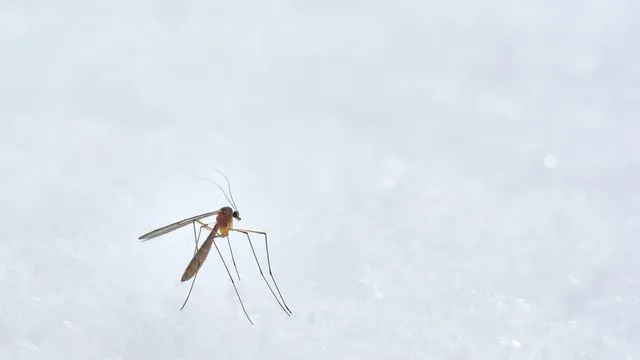
Revolutionary Bacteria from Crete: The Future of Mosquito Control?
2025-07-08
Author: Daniel
New Breakthrough in Biopesticide Development
A groundbreaking study has unveiled bacterial isolates from the beautiful island of Crete that could change the game in mosquito control. These natural warriors show incredible potential for killing mosquito larvae in lab settings, paving the way for eco-friendly biopesticides aimed at combatting disease-carrying mosquitoes without harming the environment.
The Quest for Effective Biopesticides
Biopesticides are innovative pest control agents derived from natural resources like microbes, plants, and minerals. This research, featured in the esteemed journal 'Applied and Environmental Microbiology,' shines a spotlight on specific bacterial strains that produce deadly metabolites targeting the notorious mosquito species, Culex pipiens molestus, known for spreading dangerous pathogens like the West Nile virus and Rift Valley fever.
Speedy Results from Nature's Defenders
Researchers conducted extensive tests, exposing mosquito larvae to extracts from bacterial metabolites collected from various habitats across Crete. Astonishingly, over 100 isolates eliminated all larvae within seven days, with 37 doing so in under three days! Remarkably, three isolates achieved total larval mortality in just 24 hours, suggesting these compounds act rapidly and effectively.
Harnessing Nature's Diversity for Mosquito Control
This promising study is part of the MicroBioPest project, funded by the European Union to unveil microbial solutions for pest management. A collaborative effort between the Institute of Molecular Biology and Biotechnology in Crete and Johns Hopkins University, the research flaunts isolates from 20 bacterial genera, many of which had never been linked to insecticidal properties.
No Infections, Just Pure Efficiency
Crucially, the study revealed that the demise of mosquito larvae was due to exposure to bioactive compounds rather than bacterial infections. This discovery means that future products may not even need live microbes, simplifying the formulation and application process for pest control.
Expanding Horizons in Pest Management
The research team is now on a mission to decode the molecular makeup of these insecticidal compounds, identifying whether they are proteins or other metabolites. Additionally, tests are underway against other mosquito species and agricultural pests to uncover the full potential of these bacterial isolates.
Environmental Benefits of Biopesticides
Unlike synthetic insecticides that linger in ecosystems, these microbially-derived biopesticides break down quickly in the environment, significantly reducing ecological impact. However, this characteristic also means that to uphold their effectiveness, multiple applications might be necessary.
A Bright Future for Sustainable Pest Control
This study underscores the importance of biodiversity in discovering new pest management tools and sheds light on a safer, more sustainable alternative to traditional insecticides. It opens up exciting avenues for safeguarding public health while protecting our planet.



 Brasil (PT)
Brasil (PT)
 Canada (EN)
Canada (EN)
 Chile (ES)
Chile (ES)
 Česko (CS)
Česko (CS)
 대한민국 (KO)
대한민국 (KO)
 España (ES)
España (ES)
 France (FR)
France (FR)
 Hong Kong (EN)
Hong Kong (EN)
 Italia (IT)
Italia (IT)
 日本 (JA)
日本 (JA)
 Magyarország (HU)
Magyarország (HU)
 Norge (NO)
Norge (NO)
 Polska (PL)
Polska (PL)
 Schweiz (DE)
Schweiz (DE)
 Singapore (EN)
Singapore (EN)
 Sverige (SV)
Sverige (SV)
 Suomi (FI)
Suomi (FI)
 Türkiye (TR)
Türkiye (TR)
 الإمارات العربية المتحدة (AR)
الإمارات العربية المتحدة (AR)